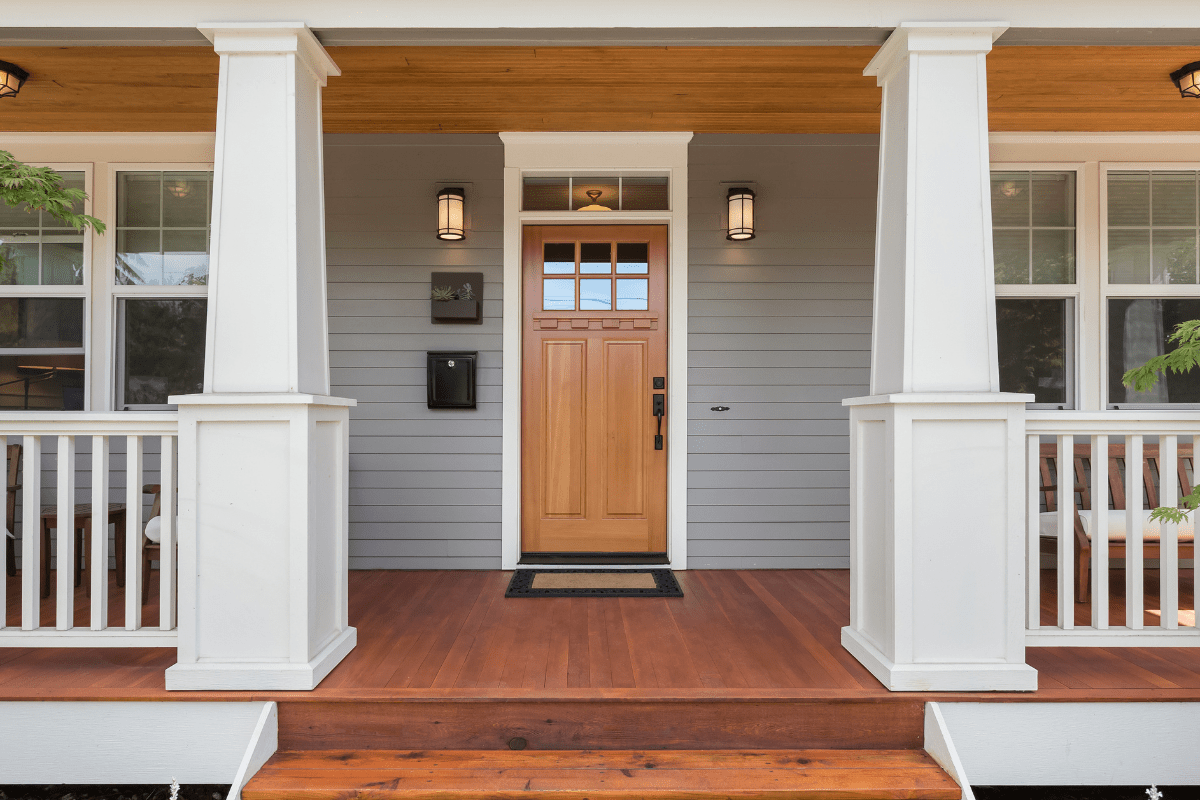Living in Florida feels like paradise until you open your monthly bills. Between hurricane insurance that costs more than your mortgage, property taxes that seem to climb faster than a Space Coast rocket, and electric bills that could fund a small country… well, let's just say the sunshine tax is real.
The insurance game has finally changed
For the first time in what feels like forever, Florida homeowners are catching a break on insurance. Citizens Property Insurance just announced a 5.6% rate decrease for 2025, and suddenly everyone's acting like they've won the lottery. But here's the thing: that's just the beginning of what you could save.
Wind mitigation: Your golden ticket
Listen, I know getting another inspection sounds about as fun as a root canal, but a wind mitigation inspection is basically free money. You'll spend $200-400, and most people save that much on their first reduced premium. We're talking potential savings of up to 90% on the hurricane portion of your insurance. Yes, you read that right. Ninety percent.
The inspector checks for hurricane-resistant features you might not even know you have. Maybe your previous owner installed hurricane straps but never told you. Perhaps your garage door is already reinforced. These inspectors are like treasure hunters, except the treasure is insurance discounts.
If your home was built before 2002 and lacks hurricane clips or straps, adding them can slash your windstorm premium by 20-50%. Sure, it's not a weekend DIY project, but when you're saving thousands annually, suddenly crawling around in your attic doesn't seem so bad.
My Safe Florida Home: Where the state actually helps
Remember when your parents said there's no such thing as free money? They were wrong. The My Safe Florida Home program literally gives you $2 for every $1 you spend on hurricane improvements, up to $10,000.
Let's do the math because it's actually fun for once. Those impact windows you've been eyeing that cost $15,000? You pay $5,000, the state pays $10,000. It's like having a really generous uncle, except it's Florida, and they're actually trying to keep your roof attached during the next hurricane.
The program also offers free wind mitigation inspections for eligible homeowners. Free. As in zero dollars. The catch? You need a homestead exemption, and funding runs out faster than beer at a Gasparilla parade.
Quick wins that actually work
Not ready to renovate your entire house? I get it. Here are some easier victories:
- Install water leak detectors (5% discount)
- Bump deductible to $1,000 (25% savings)
- Add security system (5-20% off)
- Fix your credit score (save $1,230/year)
- Shop around annually (seriously, do this)
That last one is crucial. Mark Friedlander from the Insurance Information Institute says homeowners are finding premiums "as high as 50% less than last year" just by shopping around. The market has 11 new companies competing for your business. Let them fight over you.
Property taxes: The exemptions you're missing
Property taxes in Florida are like that friend who keeps borrowing money… they just keep taking more. But unlike that friend, you can actually reduce what you owe through exemptions most people forget to claim.
Homestead exemption basics
The homestead exemption is your first line of defense, knocking up to $50,000 off your assessed value. The average homeowner saves about $800 annually, which is roughly 70 trips to Publix for those BOGO deals.
Here's what many people miss: you have to apply by March 1st, and it's not automatic. I've met folks who lived in their homes for years without claiming it because they thought it happened magically. Spoiler alert: it doesn't.
The first $25,000 gets exempted from all property taxes, while the next $25,000 (for homes worth $50,000-$75,000) dodges non-school taxes. It's not exactly thrilling math, but it's thrilling when you see the savings.
Save Our Homes: The gift that keeps giving
This might be Florida's best-kept secret. The Save Our Homes cap limits your annual assessment increase to 3% or inflation, whichever is lower. For 2025, that's just 2.9%.
Let me paint you a picture. Your neighbor buys an identical house next door for $400,000. You bought yours five years ago for $250,000. Thanks to Save Our Homes, you're still paying taxes on maybe $290,000 while they're paying on the full $400,000. It's like having a VIP discount that never expires.
Even better? When you move within Florida, you can transfer up to $500,000 of accumulated savings to your new home. It's portability without the backache.
Special exemptions most people ignore
Are you 65 or older? There's an extra $50,000 exemption waiting if your household income is under $37,694. Veterans with service-connected disabilities get $5,000 off at just 10% disability. And if you're a quadriplegic, your property taxes disappear entirely… though I'm guessing you'd rather have working limbs than free property taxes.
Here's a pro tip that sounds too simple to work: pay your property taxes early. November payment gets you 4% off, December 3%, January 2%, and February 1%. On the average tax bill, paying in November saves you almost $100. It's like Black Friday, but for taxes.
Energy bills: Taming the AC monster
Florida's relationship with air conditioning is complicated. We can't live without it, but it's eating us alive financially. The average Floridian pays $157 monthly for electricity, and most of that goes to keeping our homes from feeling like saunas.
HVAC hacks that actually matter
Your AC accounts for 40-60% of your energy bill, which means small changes create big savings. Setting your thermostat to 78°F saves 8% per degree compared to lower settings. I know, I know… 78 sounds warm. But once you see the savings, it starts feeling pretty comfortable.
Upgrading from an ancient 10-SEER system to a 14-SEER unit cuts cooling costs by 25% or more. Yes, it's an investment, but between energy savings and rebates, it pays for itself faster than you'd think.
Smart thermostats are the lazy person's path to savings (and I mean that lovingly). They learn your schedule, adjust automatically, and save about $180 annually. Plus, you can control them from your phone, which means you can crank the AC right before you get home. Living in the future has its perks.
The humidity hack nobody talks about
Here's something most Floridians don't realize: it's not the heat, it's the humidity that makes you miserable. A whole-house dehumidifier costs about $15 monthly to run but lets you set the thermostat 2-3 degrees higher while feeling just as comfortable. That translates to $300+ in annual AC savings.
Plus, keeping humidity below 50% prevents mold, which is basically Florida's state flower. Professional mold remediation runs $2,500-6,000, so prevention isn't just smart… it's essential.
Rebates and incentives galore
Florida just received $346 million for energy rebate programs. Low-income households can get up to $14,000 in rebates covering 100% of upgrade costs. Even moderate-income families get 50% coverage.
Duke Energy customers can snag these rebates:
- High-efficiency HVAC: $300
- Energy-efficient windows: $400
- Smart thermostats: varies
- Insulation upgrades: varies
Time-of-use rates offer another opportunity. Shift your laundry, dishwashing, and pool pump to off-peak hours and save 20-30%. It's like happy hour pricing for electricity.
Solar: The long game that pays
Solar in Florida makes more sense than a screen enclosure around your pool. Average installation runs $2.16 per watt, so a typical 5kW system costs $10,777. But wait… there's more (in a good way).
The 30% federal tax credit drops that to $7,543. Florida's sales tax exemption saves another 6%. Best part? Solar additions are 100% exempt from property tax increases.
Average payback is 9.77 years, after which you're basically printing money. If you're planning to stay in your home for a decade or more, solar is a no-brainer.
Hurricane-proofing as an investment
Preparing for hurricanes in Florida isn't paranoia… it's just Tuesday. But here's what most people don't realize: proper preparation costs 50-75% less than post-storm repairs AND qualifies for insurance discounts. It's like getting paid to protect your house.
FORTIFIED certification: Going above and beyond
The FORTIFIED Home program sets construction standards that make regular building codes look like suggestions. Getting certified costs $5,000-15,000 depending on your upgrade level, but some insurers offer discounts up to 55%.
It's not just about insurance either. FORTIFIED homes sell faster and for more money. Buyers see that certification and think "this house can take a punch," which in Florida is basically a selling point.
Storm protection that makes cents
Not ready for full FORTIFIED certification? Storm shutters offer solid protection at $2,000-8,000 for an entire home. You've got options:
- Accordion shutters ($15-25/sq ft): Easy deployment
- Roll-down shutters ($20-30/sq ft): One-button convenience
- Removable panels ($2-5/sq ft): Budget-friendly
- Impact windows ($40-55/sq ft): Always ready
All approved shutters qualify for insurance discounts up to 30% on windstorm coverage. Impact windows get you up to 45% off and never need deployment. They're like the Swiss Army knife of hurricane protection.
Maintenance: The unsexy money-saver
Nobody gets excited about maintenance, but ignoring it in Florida is like ignoring that check engine light… expensive and preventable.
Annual roof inspections ($200-500) catch problems before they become indoor waterfalls. In coastal areas, metal corrodes 10 times faster than inland, so quarterly pressure washing ($200-500) isn't just cosmetic… it's protective.
Don't forget about gutters. Cleaning them quarterly ($150-300) seems annoying until you realize clogged gutters cause water damage that leads to mold. And termites? They're having a party in Florida's climate. Annual prevention ($200-900) beats treatment costs of $700-6,800 every time.
State programs: Your tax dollars at work
Sometimes Florida actually tries to help its residents. These programs prove it.
Weatherization Assistance Program
If your household income is below 200% of federal poverty guidelines, the Weatherization Assistance Program provides free home improvements. We're talking insulation, duct sealing, window replacement, and HVAC upgrades… all free.
Priority goes to elderly residents, disabled individuals, and families with young children. It's like extreme home makeover, but for energy efficiency.
LIHEAP: Keeping the lights on
The Low Income Home Energy Assistance Program provides up to $2,000 yearly for utility bills. They also offer crisis assistance if you're facing disconnection. It's not charity… it's using programs your taxes already fund.
Property tax appeals: Fight back
Think your property is overvalued? You've got 25 days after receiving your TRIM notice (usually in August) to file an appeal. Professional appraisals dramatically improve success rates.
Many people skip this because it seems complicated, but counties often settle just to avoid hearings. It's like negotiating with a used car dealer, except you're negotiating your tax bill.
Your action plan starts now
Success with these strategies requires action, not just reading. Here's your roadmap:
Today (free):
- Schedule wind mitigation inspection
- Check exemption status online
- Set thermostat to 78°F
- Request insurance quotes
This month (under $2,000):
- Install smart thermostat
- Buy water leak detectors
- Plan maintenance schedule
- Research rebate programs
This year ($2,000-10,000):
- Apply for My Safe Florida Home
- Upgrade to efficient HVAC
- Install storm protection
- Consider dehumidifier
Long-term (over $10,000):
- Evaluate solar potential
- Plan impact window upgrades
- Pursue FORTIFIED certification
- Complete energy overhaul
The bottom line that matters
Florida homeowners typically cut housing costs by 20-40% using these strategies. That's not marketing fluff… it's math based on real savings from real programs.
The insurance market has finally stabilized. State programs are fully funded. Energy rebates are flowing. This confluence of opportunities won't last forever, and every month you wait costs money in missed discounts and preventable damage.
Start with the free stuff. Get that wind mitigation inspection. Claim your exemptions. Then systematically work through improvements based on your budget. Your future self (and bank account) will thank you when the next hurricane season rolls around and your bills don't make you cry.
Living in paradise shouldn't mean choosing between groceries and keeping your house insured. With these strategies, you can have both… and maybe even afford that boat you've been eyeing. After all, this is Florida. We're supposed to be enjoying the sunshine, not stressing about paying for it.





